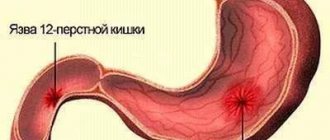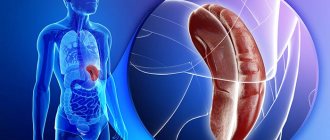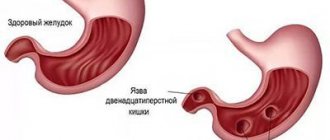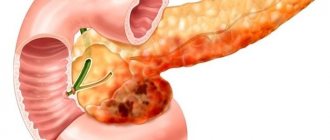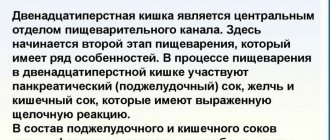With the onset of autumn, air temperature, atmospheric pressure, humidity and daylight hours change significantly. For the human body, this is stress, against the background of which chronic diseases of various types can worsen - from rheumatism to depression. In addition, it is in the fall that the seasonal ARVI epidemic begins.
If you have a predisposition to diseases that make themselves felt in the autumn, it will be useful to make an appointment in advance for a consultation with a doctor at the Diagnostic and Treatment Center. The specialist will select effective preventive measures to prevent exacerbation and mitigate its symptoms.
Acute respiratory diseases
The period from October to May marks the peak incidence of ARVI - acute respiratory viral infections. These include the influenza virus and about 200 other pathogens.
The disease is accompanied by high fever, cough, sore throat and other unpleasant symptoms that can make you unable to work for several days. In addition, ARVI and influenza are fraught with dangerous complications on internal organs if the disease is not treated sufficiently or if it is suffered “on your feet”.
To protect yourself from respiratory infection, follow these preventive measures during the fall and winter months:
- Make sure that every day your body receives the minimum necessary for a strong immune system: healthy sleep and moderate physical activity. You can gradually get used to hardening.
- Wash your hands with soap or use a skin sanitizer repeatedly throughout the day. Try to touch surfaces in public places less, as viral infections can be transmitted through them.
- Keep the nasal mucous membranes moisturized, as their barrier function is reduced by excessive dryness. Use special sea salt sprays or pharmaceutical saline solution.
- Drink more pure water, herbal teas and other healthy drinks than usual. Black tea and strong coffee are not among them, since, on the contrary, they remove fluid and minerals necessary for immunity from the body.
- Add ginger, turmeric, garlic, onion, lemon and other ingredients that support immunity to your food.
- Treat problem teeth and eliminate other possible sources of infection in the body before the start of the fall season. The body spends its protective forces on them and becomes more vulnerable to viruses penetrating from the outside.
- Try to give up bad habits during the seasonal epidemic, because smoking and alcohol abuse negatively affect the immune system.
If viral and infectious diseases bother you very often, this is a reason to seek advice from an immunologist.
It is important to tune in to long-term treatment, and possibly lifestyle changes. Damaged cartilage tissue in the area of the affected joint will not recover completely, but a properly selected set of measures can significantly alleviate the condition. To accurately diagnose problems with the musculoskeletal system, in our center you can take an X-ray of the spine with functional tests.
Seasonal exacerbations of gastrointestinal diseases, duodenal intubation, gastrointestinal diagnostics
30.06.2020
Seasonal exacerbations of gastrointestinal diseases
Summer is a wonderful time of year: seasonal colds have receded, ripening vegetables, fruits, and herbs from your garden add a wonderful mood.
Finally, you can have a picnic and treat yourself and your loved ones with food cooked over a live fire. But a sense of proportion is necessary in everything. After all, summer is a period of exacerbation of chronic and newly diagnosed gastroenterological diseases. And even seemingly harmless symptoms can lead to major troubles in the form of complications in the future. Today we will look at some of the most common questions patients ask a gastroenterologist. Our questions will be answered by the deputy chief physician of the “Chief Patient” clinic, a doctor of the highest category, a general practitioner, a gastroenterologist – Elena Alekseevna Golubeva. And the first question is acid-dependent diseases. What it is? — Acid-dependent diseases (ADDs) are the most common diseases of the gastrointestinal tract.
One of the most common is GERD, or as it is popularly called, “heartburn.” According to statistics, this disease occurs in 62% of men and 64% of women, and about 15% of sufferers experience heartburn constantly. Hydrochloric acid is very aggressive, and if its effect is stronger than the protection of the gastric mucosa, a peptic ulcer may occur. Therefore, you should not treat yourself or endure daily attacks of heartburn; you should consult a gastroenterologist. If we talk about the whole “bouquet”, then this group includes: GERD - gastroesophageal reflux disease; • PU – gastric ulcer; • Duodenal ulcer; • Functional dyspepsia; • Endocrine ulcerative lesions of the gastroduodenal region.
— What provokes the onset or exacerbation of the disease?
And how do you understand that there is an exacerbation of the disease, and not food poisoning? - A large amount of greens, vegetables, fruits, the level of secretion increases seasonally, and first of all, patients with chronic diseases - duodenitis, peptic ulcers and diseases of the biliary system - feel this.
Therefore, if you experience pain, diarrhea, bloating, or prolonged heartburn, you should urgently consult a gastroenterologist. If similar symptoms are accompanied by an increase in body temperature, then most likely it is food poisoning and this is also a reason to urgently consult a doctor. — Have you heard about the pathology of the biliary system - dysfunction of the sphincter of Oddi.
How serious is this, can you treat it yourself? - Firstly, it is very painful.
Painful attacks typical of biliary colic are possible, cramping, radiating to the back or shoulder, or sharp pain in the epigastrium, radiating to the back. And in this case, an urgent examination and diagnosis during an attack is necessary, because There may not be any deviations in laboratory test data after an attack. The condition may be accompanied by a feeling of heaviness in the stomach and dyspeptic disorders. Dysfunction can be provoked by a banal “food shock”, for example, during a picnic in nature, eating fatty foods, especially in combination with alcohol. We also recommend that you immediately consult a doctor about this to avoid complications and chronicity of the condition. — How is the examination carried out, how long does it take to make a diagnosis and receive treatment recommendations?
— Modern diagnostic and treatment methods used in the clinic provide the patient with a minimum of discomfort.
The clinic has everything necessary for the patient to undergo a quality examination in 2-3 days, and treatment begins as soon as the patient comes to our clinic. For additional examination, clarification of the diagnosis and adjustment of therapy for the disease, an FGDS (during the procedure, a Helicobacter test and a biopsy for cytology), ultrasound of the abdominal organs, duodenal intubation, general and biochemical blood tests, etc. can be prescribed. We remind you that our clinic is doing everything possible for the safety of our patients: since the beginning of the pandemic, a mask regime has been introduced, social distance is maintained between patients, all work surfaces are sanitized every hour, our patients can use a hand sanitizer, thermometry is carried out, patients with ARVI symptoms.
With warm care for you, Main Patient Clinic
Peptic ulcer and gastritis
With the first cold weather, chronic diseases of the digestive tract may worsen: stomach ulcers or gastritis. The condition worsens because the temperature and humidity in the fall are very unstable, the weather changes dramatically. In addition, in the fall, many people face stress and mood changes. All this leads to the fact that the stable functioning of the gastrointestinal tract in patients with chronic diseases is easily upset.
What signs may indicate an exacerbation of a stomach ulcer or gastritis:
- Abdominal pain;
- Heartburn;
- Constant belching after eating;
- Nausea and vomiting;
- Loss of appetite;
- Problems with stool, etc.
If, with the onset of autumn, discomfort and pain in the stomach area appear, this is a reason to see a specialist and, if necessary, undergo an examination. The sooner the disease is diagnosed, the faster the doctor can help you.
To stabilize the gastrointestinal tract during seasonal exacerbation of diseases, the gastroenterologist will prescribe appropriate treatment:
- Antibacterial therapy if chronic inflammation of the stomach is caused by Helicobacter Pylori, a pathogenic microorganism. It is detected, for example, using a breath test.
- Medicines that alleviate the condition during exacerbation of gastritis or ulcers and help establish comfortable digestion.
- A special gentle diet. During the treatment of stomach diseases, the diet consists only of healthy, neutral foods. All “irritants”, including spices, spicy, fatty, fried foods, should be excluded.
Sometimes problems with the gastrointestinal tract are triggered by stress. In this case, you may need to consult other specialized specialists who will help you choose treatment together with a gastroenterologist.
Prevention of exacerbation of gastritis in spring
Why does gastritis often worsen in the spring?
Because for the majority it is a chronic disease (acute gastritis, with proper treatment, goes away quickly and without consequences). And any “chronicle” becomes more active in the spring: the whole body undergoes a restructuring, after winter the immune system is weakened, fatigue and weather changes take its toll. Exacerbations of gastritis are often provoked by changes in diet: some strictly observe fasting, others go on a diet, trying to regain their slimness by summer.
Another patient mistake: after a winter vitamin deficiency, much more fresh greens and fresh vegetables appear on the table, and this irritates the stomach. In general, there are many private reasons, but the main one is the inability (or unwillingness) to manage one’s illness.
Can other diseases be hidden under the symptoms of gastritis and how to find out?
They can. For example, complaints of pain do not always indicate gastritis; heartburn or belching is often a consequence of reflux disease (stomach contents are thrown into the esophagus, and bile into the stomach). The diagnosis of any gastrointestinal disease cannot be made only on the basis of patient complaints! So if problems arise, you should go not to a therapist, but to a gastroenterologist, who will prescribe the necessary examination. In general, gastritis is a variety of diseases of the upper digestive tract: it can be functional dyspepsia, ulcerative-erosive gastroduodenitis and others. And in each option the treatment is different.
Diagnosis of chronic gastritis includes: a test for Helicobacter (in 80% of cases this infection is the culprit of the disease), gastroscopy, general and biochemical blood tests. If necessary, additional studies and tests are prescribed.
Is it possible to prevent exacerbations of gastritis?
First aid should always be at hand - often this allows you to extinguish an exacerbation at the “start”. Did you overeat or take liberties with your food? This means you need to take an enzyme preparation so that the food is successfully digested. Symptoms of discomfort appeared: heaviness, mild pain - you need antacids (Almagel, Phosphalugel, etc.). Take them 1.5 - 2 hours after meals. If the pain occurs due to gas formation, “defoamers” (Espumizan, or, in extreme cases, activated carbon) are suitable.
The best prevention of exacerbations of chronic gastritis is a healthy lifestyle: proper nutrition, physical activity (to improve the secretory and motor function of the stomach, normalize digestion). We must declare war on lack of sleep and learn to relieve psychological stress.
Allergy
In autumn, it is not hay fever (an allergy to pollen) that most often worsens, but other specific types of allergies.
Two main factors that can cause an allergic reaction in the fall:
- Cold. Already in September, the air temperature drops noticeably, night frosts begin, and some people experience allergies to the cold. It usually manifests itself as local redness of the skin, as well as a rash, blisters, etc. In more severe cases, cold allergies can cause shortness of breath, coughing, and even swelling of the respiratory system, so consulting a doctor for this problem is highly advisable.
- Mold. In autumn, in conditions of high humidity and lack of sunlight, mold grows especially actively. It affects damp corners in residential buildings, basements, storerooms, as well as fallen leaves, hay, and stocks of fruits and vegetables. For many people, mold is a strong allergen, and contact with it should be avoided in the fall.
An allergist at the Diagnostic and Treatment Center will help you determine exactly why seasonal allergies occurred. To do this, you will need to donate blood for analysis, as well as do laboratory tests to determine the allergen.
To protect yourself from exacerbation of allergies to cold, mold and other irritants in the autumn, follow these recommendations:
- Make sure that excess moisture does not accumulate anywhere in the house: mold affects such damp areas first. Clean your apartment more often using special products and be especially careful in treating areas where mold can grow.
- Ventilate your home, do not allow the air in the house to stagnate.
- Check all textiles in the apartment for mold. It is better to throw away items affected by the fungus so that they do not provoke an allergic reaction.
- Remove yellow leaves from the garden while wearing a mask and gloves to protect against mold spores.
- Eat fruits and vegetables without skin and only thoroughly washed if you are prone to allergies.
- Do not rush to turn on the humidifier as soon as the radiators become hot. To prevent mold from growing in your home, the air humidity level should be low, ideally around 45%.
- If you are allergic to cold, try not to get too cold and stock up on comfortable, warm clothes. Take care of every part of your body, including your hands and face.
Joint diseases
In the presence of chronic diseases and age-related changes, joints may react to changing weather. Arthrosis, arthritis, rheumatism - all these diseases often worsen in the fall, since at this time of year the atmospheric pressure and air humidity change significantly.
An aggravation is indicated by aching pain in the area of the knees, shoulders, elbows and other large joints; in addition, the mobility of the limbs may decrease. With these symptoms, it is necessary to promptly consult a rheumatologist.
To normalize joint mobility and eliminate pain, the specialist will recommend, for example, the following methods of treatment and supportive therapy:
- Take anti-inflammatory drugs and chondoprotectors as prescribed;
- Engage in physical therapy according to a specially selected scheme;
- Take a course of physical therapy for joint health.
It is important to tune in to long-term treatment, and possibly lifestyle changes. Damaged cartilage tissue in the area of the affected joint will not recover completely, but a properly selected set of measures can significantly alleviate the condition.
Depression
In autumn, daylight hours gradually become shorter. Because of this, in the autumn-winter time, the secretion of the hormone melatonin, and with it serotonin, which is responsible for the emotional background, is disrupted in the human body.
For this reason, most adults experience at least bouts of low mood and lethargy in the fall. And if the psyche is sensitive and there is a predisposition to depression, an autumn exacerbation of the depressive syndrome may occur.
What symptoms should you be wary of:
- Apathy, loss of interest in usual activities and work;
- Feeling of melancholy and depression;
- Lethargy, slow reactions;
- Insomnia or, on the contrary, daytime sleepiness;
- Irritability for no reason.
Exercise, walking during daylight hours, aromatherapy, and therapeutic massage will help you cope with stress. But these measures are effective only if it is a seasonal attack of melancholy, and not a mental disorder, the treatment of which should be treated by a doctor.
Unlike the ordinary autumn blues, clinical depression drags on for weeks and months, is much more severe and can lead to life-threatening consequences (including suicidal thoughts). Therefore, it is so important to consult a doctor in time and bring your hormonal levels back to normal.
Prevention of seasonal diseases at the Kutuzovsky Children's Center
If the previously described symptoms appear, you should immediately see a doctor.
It is strictly forbidden to self-medicate, as this leads to complications. Due to untimely contact with the attending physician, the patient may develop a chronic form of the disease. General deterioration of health over time will lead to longer and more complex treatment.
There are frequent cases when a progressive disease may be incurable, and a person will have to take pills for the rest of his life. Also, with chronic atrophic gastritis and peptic ulcer of the stomach and duodenum, the risk of cancer increases.
To eliminate all the consequences of the disease, it is necessary to contact a qualified specialist in our clinic in a timely manner. Here, based on the diagnostic results, the doctor will determine a strategy and tell you about all the nuances of the upcoming treatment. Our clinic employs only qualified specialists with decades of experience in diagnosing and treating diseases. Each of them is a certified doctor, an excellent professional and simply a caring person.
In our clinic you can make an appointment with a gastroenterologist, take laboratory tests, go through all the stages of identifying the disease and its complete cure.
For seasonal ARVI, you can consult our therapists and immunologists. They will carry out the necessary diagnostics as soon as possible and develop an effective treatment plan that promotes a quick recovery. In conclusion, the patient will be advised on methods of preventing the disease.
The contents of this article have been checked and confirmed for compliance with medical standards by general practitioner Yulia Vladimirovna Butskikh.
Preventative therapy
When is it better to carry out preventive treatment: during the “threatened” period (spring and autumn) or in the period preceding a possible recurrence (relapse) of the disease? Guided only by the seasonality of exacerbation of the disease, in terms of the timing of preventive (anti-relapse) therapy, you can be late.
Therefore, patients with peptic ulcer disease need to undergo preventive treatment both during seasonal exacerbations and during the period of the individual most likely recurrence of the disease in each patient. It is important to remember when the ulcer flared up in previous years and repeat prevention for at least 5 years.
The slightest push from the outside (stress, fatigue, colds, medications, nutritional disorders) - and a mismatch between the “aggressive factors” and “protective factors” of the gastric and duodenal mucosa occurs, and an ulcer may worsen.
It is possible to change the course of the disease to a more favorable one by preventing repeated exacerbations.
As for the duration of the course of treatment itself, it should last on average at least 3-4 weeks. Depending on the course of the peptic ulcer, age, concomitant diseases, complications, preventive therapy is tailored individually, both in terms of the volume of medications and the duration of treatment.
Since anti-inflammatory non-steroidal drugs aspirin, Voltaren, Brufen often turn out to be provocateurs of “medicinal ulcers”, first of all, they must be excluded from use.
Although the true origin of peptic ulcer disease still remains a mystery, it is known that it is based on a violation of the nervous regulation of the stomach. As a rule, ulcer sufferers are easily excitable, suspicious people with changeable moods. Psycho-emotional correction is the most important condition for proper treatment. Stress and negative experiences are the best stimulants for exacerbation of ulcers. Taking this into account, it is recommended to always keep motherwort and valerian in your home medicine cabinet. Calming herbs will help relieve nervous tension without side effects.
